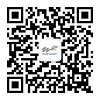Leading by "Remote Control"
(2009年11月5日)
One of our managers just had a group of employees move to home offices. As he described the situation, he acknowledged some worries. “What if they’re not as productive?” he asked. “How do those who are not used to working independently keep from getting distracted? How do I keep them motivated and focused?”
In our client organizations, I’m hearing the same question from a lot of managers: How can I effectively lead a dispersed team? There’s an old adage “Inspect what you expect.” We know that holding employees accountable for work quality and quantity has a positive, motivating effect. Since face to face observation is not a possibility with a virtual team, the question is how to “inspect” performance. To support productivity, the remote manager must find alternate methods that are reliable and accurate.
When leading from a distance, it’s especially easy to fall into the trap of making assumptions rather than evaluating specific, measureable employee behaviors. In my experience, some of the best opportunities for observing behavior remotely include:
- Listen carefully. Pay attention to how employees communicate during phone conversations, including contributions to teleconferenced team meetings. If appropriate, listen in a supportive role on customer calls.
- Examine the content of e-mails. You can expand this form of observation by asking to be copied or blind-copied on messages sent to peers, and internal or external customers.
- Review written work output. This might include documents such as proposals, internal reports, spreadsheets, or presentation slides created by team members.
- Document comments and feedback from others. Such input may be provided by team members, internal staff, or other internal or external customers who interact with employees. When possible, ask for specific, observable, examples of behaviors that support the feedback.
Following some or all of these suggestions will help you gather enough fact based information to provide accurate, unbiased evaluations of remote employee performance.
Do you manage geographically dispersed employees? What issues have you faced? Let us know what has worked best for you.








 请填写下方的表格,免费订阅我们最新的研究和文章。
请填写下方的表格,免费订阅我们最新的研究和文章。






